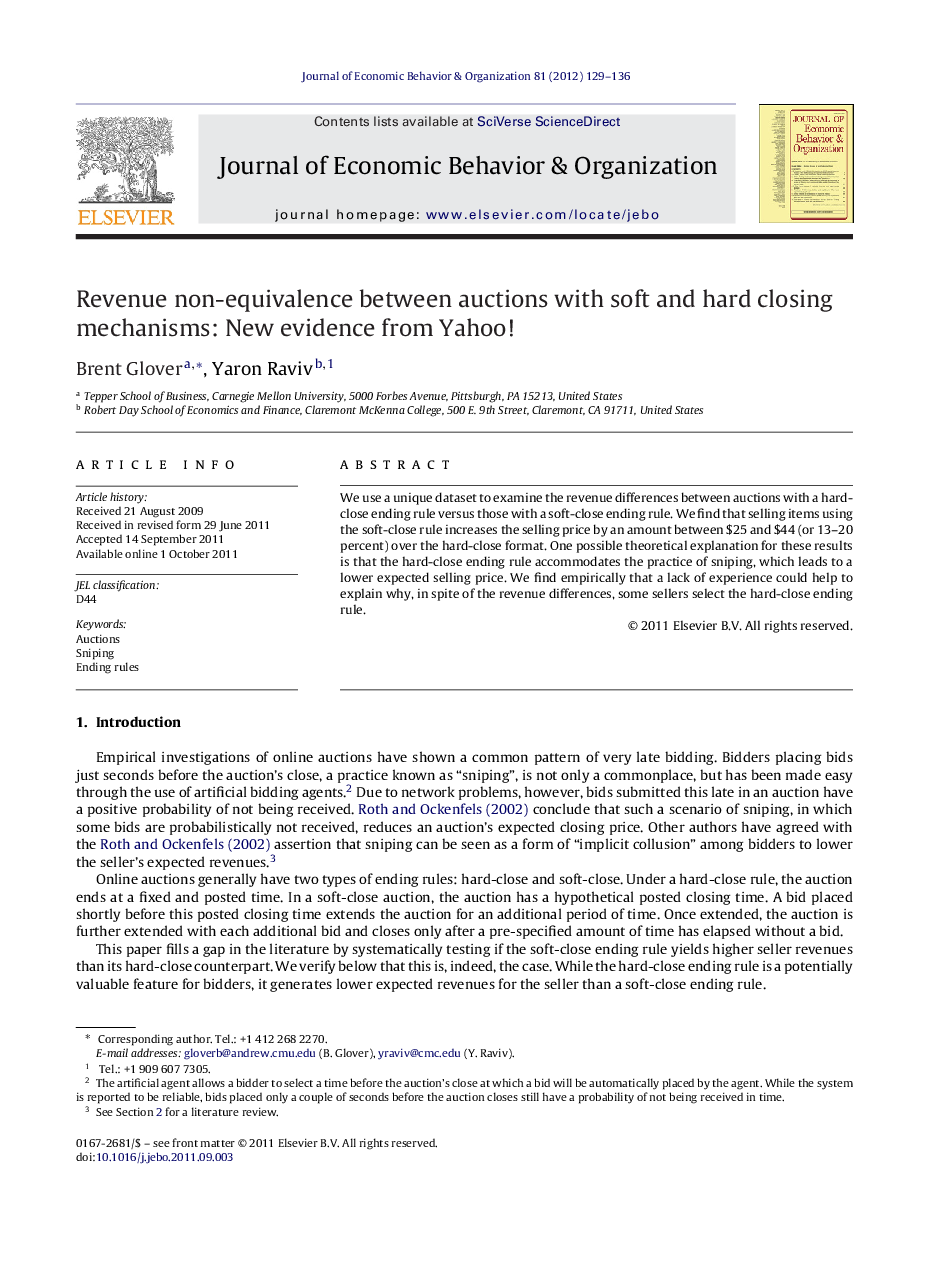| Article ID | Journal | Published Year | Pages | File Type |
|---|---|---|---|---|
| 883808 | Journal of Economic Behavior & Organization | 2012 | 8 Pages |
We use a unique dataset to examine the revenue differences between auctions with a hard-close ending rule versus those with a soft-close ending rule. We find that selling items using the soft-close rule increases the selling price by an amount between $25 and $44 (or 13–20 percent) over the hard-close format. One possible theoretical explanation for these results is that the hard-close ending rule accommodates the practice of sniping, which leads to a lower expected selling price. We find empirically that a lack of experience could help to explain why, in spite of the revenue differences, some sellers select the hard-close ending rule.
► We use a unique dataset to examine the revenue differences between auctions with a hard-close ending rule versus those with a soft-close ending rule. ► We found that selling items using the soft-close rule increases the selling price by an amount between $25 and $44 (or 13–20 percent) over the hard-close format. ► One possible theoretical explanation for these results is that the hard-close ending rule accommodates the practice of sniping, which leads to a lower expected selling price. ► We find empirically that a lack of experience could help to explain why, in spite of the revenue differences, some sellers select the hard-close ending rule.
